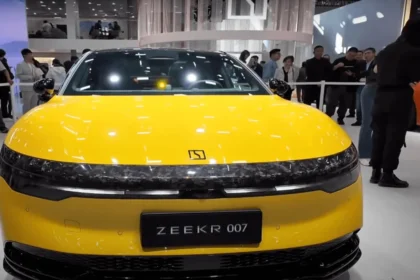Cox Automotive’s recent forecast suggests that sales of electric vehicles in the United States can potentially exceed record-breaking 1 million units in 2023, significantly fueled by Tesla’s strong presence in the domestic market.
However, Tesla’s rivals are starting to see a decline in their EV sales, leading to an increase in car inventories across dealerships.
What’s the situation?
As per the report, EVs currently hold a 6.5% market share in the US auto industry. That rate is expected to increase further as Cox Automotive’s data suggest that approximately 51% of buyers consider a new or used EV, indicating a notable interest growth from just 38% in 2021.
It must be noted that America’s leading automaker Tesla largely propels this upward trend in EV sales in the US. Its famous Model 3 and Y have been dominating the top-selling rankings, beating its closest rivals.
True enough, the electric SUV advanced as the world’s most popular by volume in Q1 2023. Meanwhile, the Model 3 will surely catch up with its sibling, especially considering the upcoming launch of Project Highland.
However, Tesla’s upward sales trend is different for the other automakers.
EV inventories beat the industry average, mostly from Tesla rivals
EV-a2z previously reported Cox Automotive’s data that suggest EV inventory surged by nearly 350% to more than 92,000 units in 2023 in the US.
Axios asserts that that figure equals a 92-day supply, reflecting an almost twofold increase from the industry average of 51 days. In contrast, gasoline-powered cars only recorded 54 days’ worth of inventory.
Several EV models, including the Audi Q4 e-tron, Q8 e-tron, and GMC Hummer EV SUV, struggle with growing inventories that have now reached more than 100 days. Even the famous Ford Mustang Mach-E now sees a 117-day supply.
Likewise, Nissan Ariya, Kia EV6, and Hyundai Ioniq 5 also share the same issues with inventories.
GMC Hummer EV SUV and the Hyundai Ioniq 5’s weak sales are unsurprising, given that they do not qualify for the federal tax credits of up to $7,500. The GMC Hummer EV SUV exceeded the standard’s price cap, while the Hyundai Ioniq 5 is imported.
However, Ford Mustang Mach-E’s poor performance is unusual because it is eligible for the said tax credit. Therefore, it is safe to assume that the growing number of EV launches in the US may have driven away customers’ interest in the iconic model.
“Up until now, this has been a Tesla, Nissan, GM story and a little bit of Volkswagen. The critical point is that it finally means something in every part of the industry, but it also means we’ve got ample opportunity to find where it’s successful and where it’s not quite as successful.”
Chief Economist Jonathan Smoke
See Also:
- Electric vehicle sales struggle to match growing dealer inventory levels in the US
- ICE vehicle supply lags behind EVs for the first time amid accelerating transition worldwide
- Tesla exceeds Q2 delivery estimates driven by price cuts and federal credits
- US: New vehicle sales to soar 15.6% in May
- US: Tesla on track to beat VW Group, BMW, and Mercedes in Q1 2023 sales
As expected, Tesla reported record-breaking EV deliveries in Q2 2023. It also employed significant price cuts and discounts across its mainstream models, including the Model 3 and Y.
Tesla Model 3’s revamped version, Project Highland, is also set to launch soon, which may further increase the sales performance of the Musk-led automaker.






